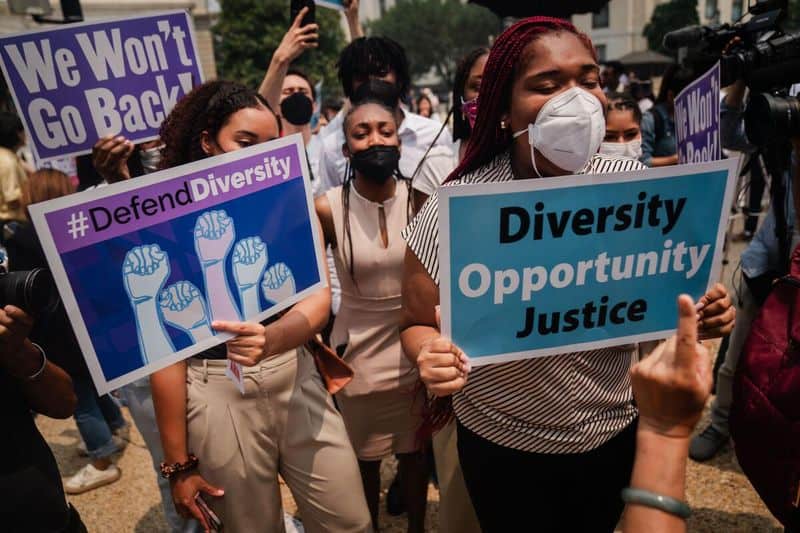In recent years, significant shifts have been observed in the workforce with Millennials and Gen Z at the forefront. Unlike their parents, these generations prioritize flexibility, purpose, and technology in their professional lives. The traditional nine-to-five job model is being re-evaluated as they seek more balance and fulfillment in their careers.
This blog post explores twelve compelling reasons why these younger generations are redefining what it means to work, emphasizing the changes they are advocating for and the impact these changes have on the broader labor market. Dive in to understand the future of work through their lens.
1. Prioritizing Work-Life Balance

Millennials and Gen Z value work-life balance more than previous generations. They seek to integrate work into their lives without letting it take over. This means flexible schedules and remote work options are highly appealing. Many prefer jobs that allow them to dictate when and where they work.
They believe productivity should not be measured by time at a desk but by the results delivered. This shift in mindset supports a healthier lifestyle that balances professional responsibilities with personal well-being, leading to increased satisfaction and reduced burnout. Employers are adapting to attract and retain young talent.
2. Embracing Technology

Growing up with technology, Millennials and Gen Z are adept at using digital tools to enhance their work. They favor companies that invest in technology, allowing them to work smarter and more efficiently. Automation and AI are not threats but tools to streamline tasks.
These generations often look for roles in tech-savvy environments where innovation is encouraged. They value digital communication platforms for seamless collaboration, preferring companies that stay ahead of technological trends. For them, tech integration in the workplace is not only expected but essential for job satisfaction and productivity.
3. Seeking Purpose Over Paychecks

Beyond monetary compensation, Millennials and Gen Z prioritize purpose and impact in their careers. They want to feel that their work contributes to something meaningful. This pursuit of purpose drives them to select employers who align with their values and support societal and environmental causes.
Financial incentives alone are no longer enough. They seek roles that fulfill personal passions and contribute to a greater good. This alignment brings motivation and engagement, fostering loyalty and long-term commitment to organizations that share their vision. Employers are challenged to highlight mission-driven goals to attract this talent.
4. Demanding Diversity and Inclusion

Diversity and inclusion are non-negotiable for Millennials and Gen Z in the workplace. They advocate for environments where differences are not just tolerated but celebrated. They expect employers to prioritize diversity in hiring and create inclusive policies that promote equality.
For them, a diverse workforce fosters creativity, innovation, and a broader perspective on solving problems. This generation is vocal about social justice issues and seeks workplaces that reflect their commitment to these values. Companies that fail to promote diversity risk losing young, diverse talent who prefer equitable and inclusive cultures.
5. Desiring Continuous Learning

The desire for continuous personal and professional growth is strong among Millennials and Gen Z. They value employers who offer opportunities for development through training, workshops, and educational programs. Lifelong learning is seen as essential to career advancement and personal satisfaction.
This generation is proactive in seeking knowledge, driven by curiosity and adaptability. They prefer roles that challenge them and provide avenues for skill expansion. Employers that invest in employee development see increased engagement and loyalty, as young professionals are eager to contribute in environments that support their growth ambitions.
6. Opting for Remote Work

Remote work is a preferred model for Millennials and Gen Z, offering freedom and autonomy. They appreciate the ability to design their work environments and schedules, leading to higher productivity. This flexibility allows them to balance personal commitments with professional duties.
For many, remote work is not just a perk but a necessity that aligns with their lifestyle preferences. They are adept at using digital tools to stay connected and efficient. Companies that offer remote work options are attractive to young talent, who value the trust and independence this model provides.
7. Fostering Collaborative Cultures

Collaboration is key for Millennials and Gen Z, who thrive in environments where teamwork and open communication are encouraged. They prefer flat organizational structures where ideas flow freely and hierarchies are less pronounced.
This generation values input from diverse voices and believes that collaborative efforts lead to innovation and success. Employers that cultivate a culture of collaboration attract young talent who are eager to contribute and learn from peers. These collaborative environments foster creativity and a sense of belonging, essential for job satisfaction and productivity in the modern workplace.
8. Challenging Traditional Hierarchies

Millennials and Gen Z are reshaping workplace hierarchies by challenging traditional top-down structures. They favor organizations where leadership is approachable and open to feedback. This approach breaks down barriers to innovation and encourages direct communication.
Young professionals seek roles where they can engage with leaders and influence decision-making processes. They value transparency and accountability in management, believing these qualities lead to a more dynamic and responsive work environment. Companies embracing this shift enjoy a more engaged workforce eager to drive positive change and contribute to organizational success.
9. Prioritizing Mental Health

Mental health is a top priority for Millennials and Gen Z, who advocate for supportive work environments that promote well-being. They expect employers to offer resources and policies that address mental health, such as counseling services and wellness programs.
This generation champions open discussions about mental health challenges and destigmatization efforts. They value workplaces that recognize the importance of mental health for overall productivity and happiness. Employers who prioritize mental health initiatives see increased engagement and loyalty from young professionals who appreciate the support and understanding offered.
10. Valuing Transparency and Trust

Transparency and trust are critical for Millennials and Gen Z in the workplace. They expect open communication from leadership regarding company goals and decisions. This generation values honesty and seeks employers who build trust through consistent and clear dialogue.
They are more likely to commit to organizations where transparency is prioritized, believing it leads to a more cohesive and motivated workforce. Companies that foster trust through open communication and ethical practices attract young talent eager to contribute to a transparent and supportive work culture.
11. Prioritizing Environmental Sustainability

Environmental sustainability is a significant concern for Millennials and Gen Z, who demand that employers take action on climate change. They prefer to work for companies committed to reducing their carbon footprint and promoting eco-friendly practices.
This generation is vocal about environmental issues and actively seeks roles in organizations that reflect their sustainability values. Companies that fail to address environmental concerns risk losing young talent who prioritize ecological responsibility in their career choices. Sustainability initiatives are not only attractive but essential for engaging these environmentally conscious professionals.
12. Pursuing Entrepreneurship and Side Hustles

Entrepreneurship and side hustles are increasingly popular among Millennials and Gen Z. They seek independence and the opportunity to pursue passions outside traditional employment. This generation values the flexibility and creativity that come with starting their ventures.
Side hustles offer additional income streams and skill development, aligning with their desire for diverse experiences. Employers recognizing this trend offer flexibility and support for entrepreneurial pursuits. By embracing these motivations, companies attract innovative and driven individuals eager to balance traditional roles with personal entrepreneurial ambitions.
13. Redefining Career Loyalty

Unlike previous generations who often stayed with one employer for decades, Millennials and Gen Z are redefining what career loyalty looks like. For them, loyalty is not measured by longevity but by the mutual value and respect between employee and employer. They are quick to move on from roles that no longer serve their growth, values, or well-being.

Well, hello there!
My name is Jennifer. Besides being an orthodontist, I am a mother to 3 playful boys. In this motherhood journey, I can say I will never know everything. That’s why I always strive to read a lot, and that’s why I started writing about all the smithereens I came across so that you can have everything in one place! Enjoy and stay positive; you’ve got this!

